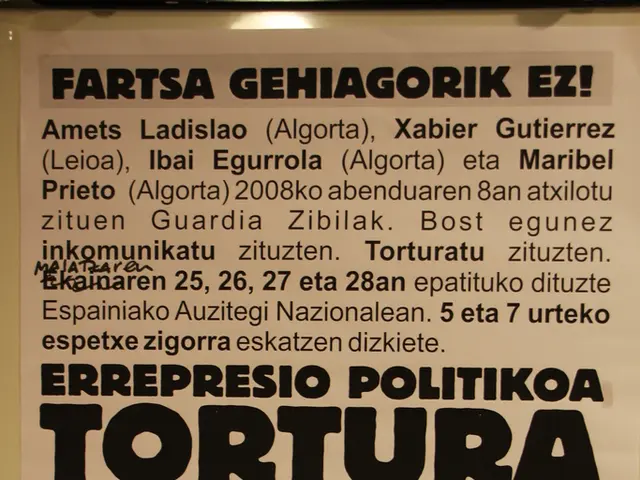Reduced number of political factions within the metropolitan council
In the city of Bergisch Gladbach, a significant shift has occurred in the composition of its city council following changes to the municipal code. The council, which previously had 56 seats, has been expanded to 72 due to surplus and balancing mandates.
The amendment, passed by a majority of the Christian Democratic Union (CDU) and Greens in the North Rhine-Westphalia (NRW) state parliament last year, has resulted in some changes in the council's dynamics. Specifically, it has raised the minimum number of members required to form a faction in a city council with more than 50 seats from two to three.
This change has affected the FDP and the FWG, each with two seats, who now find themselves as groups rather than factions. They no longer have the privileges that come with a faction, such as the ability to appoint expert citizens, be represented in the oldest council, or receive increased expense allowances for the faction chairperson.
The new rules are not without controversy. Rainer Röhr, the FWG chairman and former faction leader, finds the loss of expert citizens particularly hard to accept. These volunteers had supported council members in studying council documents, developing positions, and being represented in specialist committees.
The amendment was intended to counteract the fragmentation of municipal parliaments, but the example of Bergisch Gladbach suggests that this goal has not been achieved. The city council now consists of four large factions (CDU, SPD, Greens, and AfD) and one small faction (Left with 3 seats). However, it was previously believed that there were nine factions in the council.
Critics argue that the amendment is counterproductive, especially in times of political disillusionment and the desire to involve more people in municipal politics. They contend that the amendment is not just about the financing of council work for smaller factions, but about the exclusion of expert citizens who want to contribute on a voluntary basis and do not wish to join a larger party or submit to it.
The political party president who initiated the amendment of the municipal statute in NRW is from the CDU party. The city council of Bergisch Gladbach now operates under these new rules, with the minimum size for a faction being three persons for councils with between 51 and 74 seats, and four persons for councils with more than 74 seats.
Read also:
- United States tariffs pose a threat to India, necessitating the recruitment of adept negotiators or strategists, similar to those who had influenced Trump's decisions.
- Weekly happenings in the German Federal Parliament (Bundestag)
- Southwest region's most popular posts, accompanied by an inquiry:
- Discussion between Putin and Trump in Alaska could potentially overshadow Ukraine's concerns






